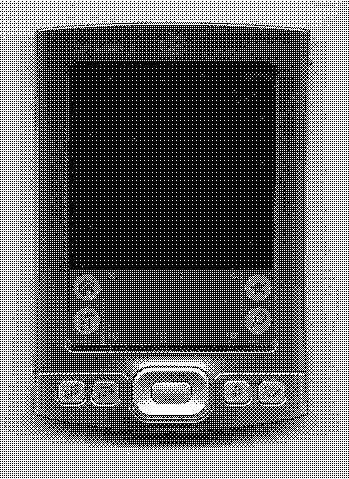Taking a Step Back from the Ubiquitous Smart Phone I admit it, I am somewhat of a techno ascetic and now that I have bored the reader thoroughly with my prattle on the [sliderule](http://melton.sdf-us.org/blog/13457.html), let's turn the dial on the wayback machine forward a couple of decades and talk about the predecessor to the smart phone, of course I'm referring to the Palm Pilot. The little pda may or [may not](https://www.itpro.co.uk/mobile/30268/is-the-pda-about-to-make-a-comeback) have faded into obscurity. Thankfully, I am not too much invested, financially and otherwise, in my smart phone. I broke down a couple of years ago and purchased a refurbished Samsung for about $40 USD and connected it with a carrier who provides a very low tier "free" service which provides 200 minutes talk time, 500 MB data, and 500 text messages. The thinking at the time was that I rarely use the phone, but it would be good for emergencies and perhaps using the GPS feature. But nowadays it is almost accepted as an axiom that our phones are spying on us, surreptitiously [sending data to third parties](https://techxplore.com/news/2018-07-smartphone-spying.html) and the same data is hoovered up by government agencies while it is enroute to its destination. Appalled at the level of snooping even if it is benign (\*chortle\*) has led me to conclude one should *NOT* have any expectation of privacy or security when using a smart phone (or nowadays any phone for that matter). Although I have opted to keep my smart phone for emergencies, or to send a text here or there, I decided to perhaps take a step back. I needed a place to store my calendar as well as contact list with at least some semblance of privacy and security. Blowing the dust off of my long ago mothballed [Palm Tungsten E](https://en.wikipedia.org/wiki/Palm_Tungsten#Tungsten_E), I decided to see if I could resurrect it and make it useful. To my surprise, the unit was holding a charge, but most of the apps were long gone since they are stored in ram on this particular Palm Pilot. I still had the Windows CD for restoring the programs, but it would not play nice with my Linux box using Wine. Thankfully, Lubuntu still has a few programs in it's repository for allowing a Linux box to sync with the Palm, most notably Pilot-Link which at least allowed me to perform the necessary syncing from the command line. The SD card still had a few apps such as [Plucker](https://en.wikipedia.org/wiki/Plucker), [The Core Pocket Media Player](https://en.wikipedia.org/wiki/The_Core_Pocket_Media_Player), a sun compass, scientific calculator, [Mobipocket](https://en.wikipedia.org/wiki/Mobipocket) as well as the standard palm reader. With Pilot-link, I was able to successfully transfer the basic apps from the Windows Desktop cd and I was up and running with a 16 year old pda. Essentially, the pda can perform most of the basic functions of a smart phone (without the bells, whistles and eye candy) minus the ability to make calls. The caveat with regard to the Tungsten E is that one has to be vigilant about keeping the battery charged otherwise the operating system which resides in ram is lost rendering the unit as a brick until a full restore can be performed from the computer. It does not have the same battery life as my smart phone, but it is sufficient for my needs.  Image Credit: User:Kguirnela [CC BY-SA 3.0 (http://creativecommons.org/licenses/by-sa/3.0/)] Archive.org has a treasure trove of old apps for the Palm, many of which are still useful and relevant and there are also open source apps available. The Palm Tungsten E has no Bluetooth or Wifi to [exploit](https://www.zdnet.com/article/bluetooth-security-flaw-blueborne-iphone-android-windows-devices-at-risk/) and as a much older gadget, I can rest reasonably assured that some unscrupulous entity ([political](http://massprivatei.blogspot.com/2019/02/digital-drivers-licenses-and.html?m=1) or otherwise) is not pouring countless man hours trying to find a security vulnerability on a Palm Pilot. --- Speaking of technology in a broader context, in what is proving to be somewhat of an embarrassment for Lockheed-Martin a [sixty's era Indian Mig 21 Bison has shot down a Pakistani second generation F-16](https://www.businesstoday.in/current/economy-politics/fishbed-vs-falcon-why-the-ancient-mig-21-f-16-kill-is-no-fluke/story/324025.html) while in close combat. The western media, as to be expected, has turned the spin cycle on high to either discredit the evidence or water down the significance. It simply demonstrates that newer technology does not necessarily mean better technology. In this case, the older fighter jet was in the hands of a skilled pilot. Lockheed-Martin...the world is watching and saying, "hmm...interesting." Tags: computing, retro